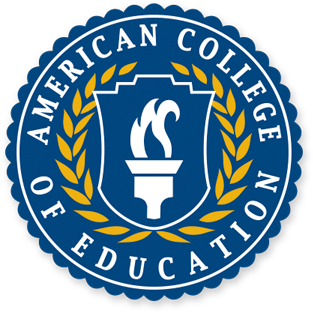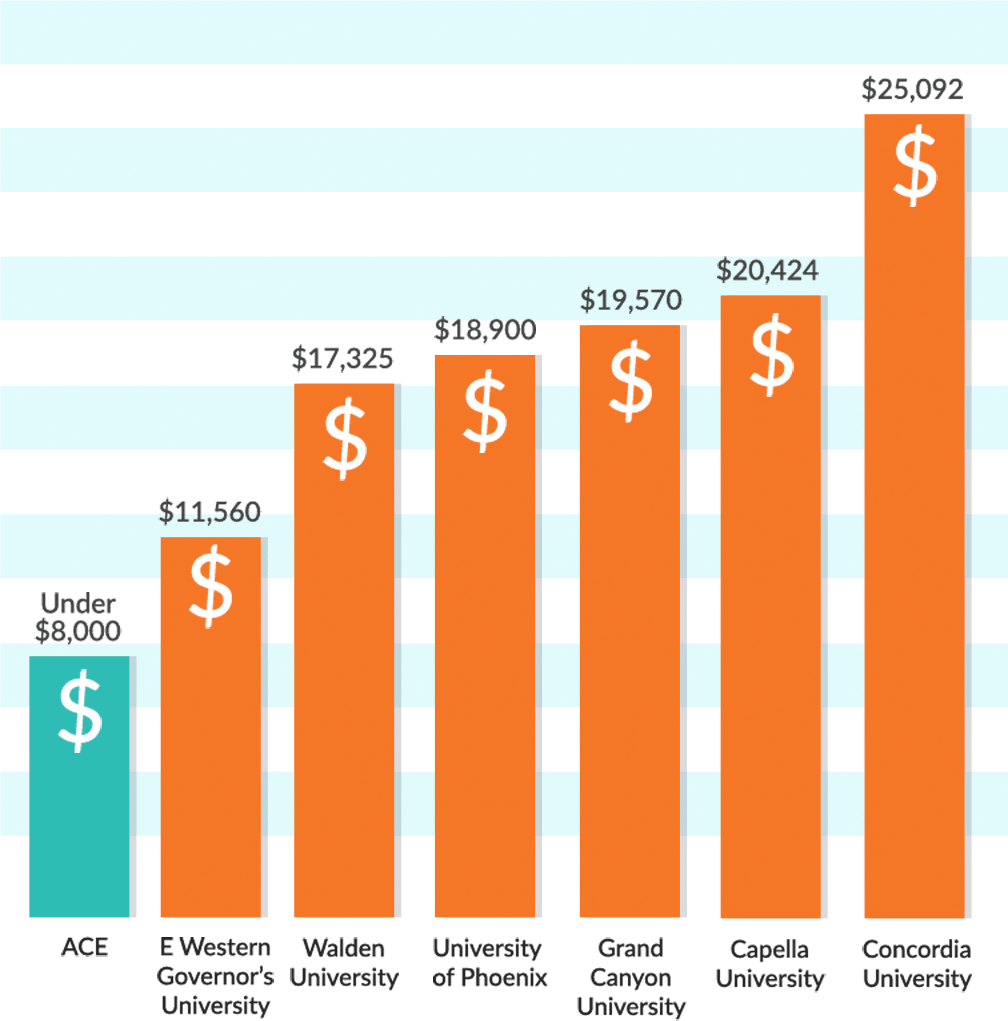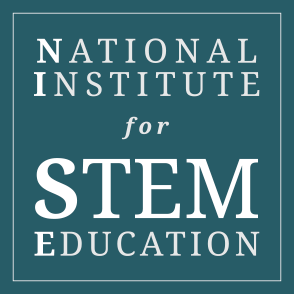The National Certificate for STEM Teaching
The National Institute for STEM Education (NISE) offers competency-based programs leading to the National Certificate for STEM Teaching. Successful teachers who wish to build their skills and teachers looking to grow their STEM teaching skills now have the opportunity to do so. Partnering with the globally recognized American College of Education (ACE), the STEM certificate conferred by NISE grants access to a low-cost, accelerated master’s in STEM Teaching and Doctorate at the American College of Education.
1 STEM Certify Teachers
- Dedicated academic coach
- Self-paced
- Competency-based
- Increases student achievement through STEM pedagogy
2 Guiding Principles
- Student autonomy
- Constructivism
- Explicit/reflective methodology 21st-century skill building
3 Competency Domains
- Creating an environment for learning
- Building scientific understanding
- Engaging students in science and engineering practices
Understanding the 15 STEM Teacher Actions Guiding Principles and Domains
The teacher actions used in the certification program will seem familiar to anyone who is familiar with research into effective teacher practice. Our list is not exhaustive but reflects both our understanding of current research into teacher practice and many hours of reflective discussion by our team of experienced professionals. Our goal was to develop a list of teacher actions that meet the criteria of 1) being highly influential according to research, 2) include those actions that are generally effective but are dominated by actions most appropriate to a STEM classroom, and 3) will be most susceptible to observation and coaching.
Guiding Principles for the National Certificate for STEM Teaching
- Student Autonomy
- Constructivism
- Explicit/Reflective Methodology
- 21st Century Skill Building
Domains and Actions for the National Certificate for STEM Teaching
| Creating an Environment for Learning | |
|---|---|
1 |
Creating a Positive Classroom Culture |
2 |
Establishing Cooperative Learning |
3 |
Integrating Technology |
4 |
Connecting Learning Outside the Classroom |
| Building Scientific Understanding | |
|---|---|
5 |
Implementing Inquiry |
6 |
Addressing Student Misconceptions |
7 |
Facilitating Questioning & Discourse |
8 |
Utilizing Assessment |
9 |
Building Scientific Literacy |
| Engaging Students in Science and Engineering Practices | |
|---|---|
10 |
Cultivating Scientific Investigations |
11 |
Developing Engineering Solutions |
12 |
Fostering Data Utilization |
13 |
Implementing Project-Based Learning (PBL) |
14 |
Developing Scientific Explanations |
15 |
Promoting Scientific Argumentation |
Continuing Education with the American College of Education


Master’s in STEM Education
and Doctorate Programs
The online Master of Education in STEM Leadership at American College of Education prepares educators to incorporate digital resources into the curriculum to enhance integrated science program education like STEM programs.
Through this program, candidates learn to promote skills in developing testable questions, establishing variables and controls, selecting data and data collection methods, and using tools to test hypotheses in ways that engage elementary, middle, and high school-aged students, leading to better student outcomes in STEM subject areas. Candidates should finish the program confident in their understanding of the content, and in leading other educators to discover the value of integrated learning.

Curriculum Outline & Pricing
American College of Education master’s degrees are up to 1/3 the cost of comparable programs
| *Course Plan | |
|---|---|
| RES5323 | Research Design and Application |
| ED5383 | Principles of Integration |
| ED5023 | Assessment Strategies |
| SCI5203 | Foundations of Integrated Science Education |
| SCI5213 | Engaging Diversity in the Science Classroom |
| SCI5223 | Modern Learning and Integrated Science Education |
| SCI5233 | Inventing and Reinventing Mathematics and Science Curriculum: Elementary, Secondary, and College Level |
| SCI5243 | Creating an Environment for STEM Learning** |
| SCI5253 | Building Scientific Understanding in Students |
| SCI5263 | Applied Science and Engineering Practices** |
| SCI5091 | Capstone Experience for STEM Leadership |




